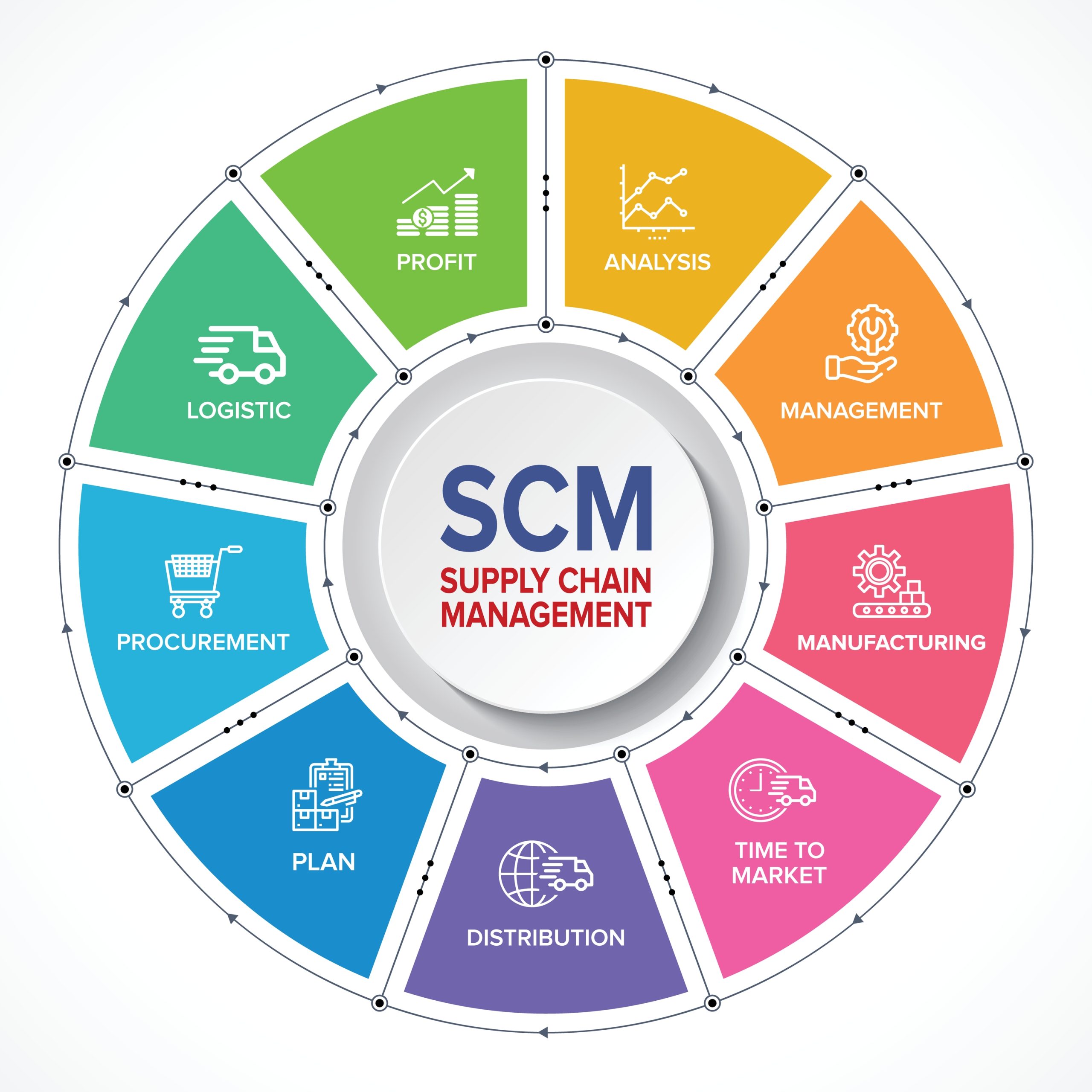
Enterprise Resource Planning (ERP) systems store a considerable amount of data, from product configurations to pricing tiers. However, some manufacturers may not understand how to leverage this important data to plan and drive their business objectives. It is a matter of knowing what ERP data to pull from your system and how to use it strategically.
This guide will help you define and use your ERP data to improve operations and enhance efficiency. It includes eight important strategies essential for success in the custom manufacturing industry. By following these suggestions, you can effectively leverage your ERP data to stay ahead of the competition.
What Data Does My ERP Store?

Frontier customers can customize reports to leverage their ERP data for improved strategic planning and better decision-making.
ERP systems store a variety of important information crucial for an organization to operate efficiently. Specific data will vary depending on the type of ERP system, modules implemented, and unique business requirements. However, there are some common types of data ERP systems store.
- Master Data: Includes core business information on customers, suppliers, products, and employees. This ERP data typically includes information like names, addresses, contact details, and other relevant attributes.
- Transaction Data: Tracks the daily activities of the company like sales, purchases, invoices, shipments, payments, and inventory changes. It provides a detailed history of business transactions over time.
- Inventory Data: Includes inventory quantities, locations, and valuation. This ERP data helps manage inventory replenishment, optimize stock levels, and track inventory movements across the supply chain.
- Financial Data: Maintains financial data related to the organization’s accounting processes. These include general ledger entries, accounts payable, accounts receivable, budgeting, cost accounting, and financial reporting. This data provides insights into the financial health and performance of the business.
- Production Data: Includes data related to production processes such as bills of materials (BOMs), work orders, production schedules, resource utilization, and quality control metrics. This ERP data helps manage production workflows and optimize manufacturing efficiency.
- Human Resources Data: Comprises employee information, including their details, job roles, payroll records, attendance, leave balances, performance evaluations, and training history. This data supports workforce management and HR processes.
- Supply Chain Data: Tracks supply chain activities including supplier information, procurement processes, vendor performance, lead times, logistics, and distribution channels. This ERP data helps optimize supply chain operations and manage supplier relationships.
- Customer Relationship Data: Includes customer interaction data like sales orders, quotes, discounts, contracts, service requests, and customer communication history. This data supports customer relationship management (CRM) processes and helps improve customer service.
Overall, ERP systems for manufacturing serve as a single source of truth for a wide range of business data. They provide manufacturers with real-time visibility, improved decision-making capabilities, and streamlined business processes across departments and functions.
The Importance of ERP Data Integration
Seamless ERP data integration eliminates data silos, providing a holistic view of the business. It also ensures that the information is consistent and helps to avoid duplicating data. Before considering data analytics, consider how each external data point enters your ERP system.
A quality ERP system like Frontier ERP for manufacturers transfers data from diverse sources without issue. Sources may include dealer portals, electronic orders, and supplier networks. Regardless of the information’s origin, seamless integration is critical for your centralized data’s single source of truth.
Leverage Your ERP Data With Analytics and Reporting
The true strength of an ERP system’s power lies in the strategic use of the data it generates. Ultimately, ERP data-derived insights empower businesses to make strategic decisions that drive growth and innovation. However, data-driven decision-making relies on robust reporting capabilities.
Your ERP system captures data from various sources internally and externally. Data sets can range from vendor shipping schedules and sales transactions to production outputs and employee performance metrics. By studying your ERP data, you can identify trends, anomalies, and areas for improvement throughout the company.
For example, ERP data analysis can reveal customer segmentation patterns, sales pipeline efficiency, and the effectiveness of marketing campaigns. It can also highlight production bottlenecks, quality control issues, and equipment maintenance requirements.
Frontier ERP offers customizable dashboards with robust analytics and reporting tools. These set the stage for better insight into key performance indicators (KPIs) and trends important to your company. Whether it’s analyzing sales trends or identifying cost-saving opportunities, comprehensive analytics and reporting empower businesses to make informed decisions in the following areas:
1. Forecasting and Planning
ERP data is a valuable resource for predicting trends and demand forecasting. By analyzing historical sales data, inventory metrics, and supply chain trends, you can develop accurate forecasts for future demand. These forecasts enable proactive planning in various areas, including inventory management, production scheduling, and workforce allocation.
For instance, a manufacturer can forecast production requirements based on historical order patterns and supplier lead times. This allows you to optimize raw material procurement and production scheduling to meet customer demand efficiently.
2. Configuration Management
Managing configurations across different products and product lines is essential for maintaining consistency and quality control. ERP data libraries contain a plethora of information on product configurations from pre-defined sets and customization options. A centralized ERP database enables efficient configuration management since all data comes from a single source.
Many custom manufacturers utilize CPQ* software in their sales order process. Frontier ERP has built-in CPQ software with a parametric product configurator, removing the need for a separate application. The data derived from sales order management and product configuration resides within one central database. This results in fewer errors, speedy quoting, and quicker turnaround.
For example, let’s say your sales reports indicate that 80% of the time customers choose leg option 1 for their custom sofa order. You can then implement make-to-stock manufacturing to ensure plenty of those legs are in stock for future orders. This way, you can be prepared to meet customer demand more efficiently.
3. Inventory Management
Effective inventory management is critical for balancing supply and demand while minimizing carrying costs and stockouts. Manufacturing ERP systems offer robust inventory management features to track stock levels, monitor replenishment orders, and manage warehouse operations. By analyzing ERP data related to inventory turnover rates, stock movements, and supplier performance metrics, businesses can execute inventory optimization strategies. Methods such as just-in-time (JIT) inventory management and safety stock optimization are key strategies often implemented.
Using advanced inventory analytics techniques such as ABC analysis can help categorize inventory items by importance. This can also help allocate resources more effectively. Businesses can use ERP data to optimize inventory levels and their replenishment processes. This can help improve cash flow, reduce costs, and increase customer satisfaction.
4. Supply Chain Optimization

From procurement to distribution, Frontier ERP provides the features and tools to optimize your supply chain management.
ERP systems play a pivotal role in orchestrating complex supply chain networks comprising suppliers, manufacturers, distributors, and retailers. You can track and manage goods and information flow in the supply chain with integrated procurement data in your Frontier ERP platform. This integration makes it easy to monitor the movement of goods and information within the supply chain. It also allows for better management of procurement processes, and helps in making informed decisions.
A well-managed supply chain is essential for maintaining competitiveness and reducing costs. Analyzing ERP data enables businesses to identify supply chain inefficiencies, such as prolonged lead times, excess inventory holding costs, and transportation bottlenecks. The best ERP systems for manufacturing enable end-to-end visibility into the supply chain, from procurement to distribution.
You can implement advanced analytics techniques to improve supply chain management, reduce costs, and increase agility. These techniques include network optimization, demand-supply matching, and vendor performance analysis.
As mentioned earlier, ERP data analysis can help predict demand. This prediction can help you adjust production and inventory based on market changes and customer preferences. It allows you to collaborate with key suppliers and partners while forming strong relationships and minimizing supply chain risks.
5. Streamlining Core Business Processes
ERP systems act as the backbone of organizational processes, automating routine tasks, enforcing standardized workflows, and promoting cross-functional collaboration. By analyzing process data captured within the ERP system, you can identify inefficiencies, streamline workflows, and eliminate redundant activities across the entire company.
For example, companies use Frontier MES production scheduling and tracking data sets to optimize resource utilization. ERP data reports facilitate streamlined production workflows, from scheduling orders to tracking progress in real time. This ensures timely delivery of products while minimizing bottlenecks and inefficiencies.
ERP data analysis may also reveal opportunities for workflow optimization in procurement processes. Some examples of this include automating purchase requisition approvals and using vendor performance metrics to improve supplier selection. Additionally, implementing electronic invoicing systems can simplify accounts payable processes.
By monitoring performance metrics and benchmarking against industry best practices, businesses can use their ERP data to drive process excellence initiatives and achieve sustainable competitive advantages.
6. Enhancing Customer Service
Exceptional customer service is a cornerstone of business success. ERP data serves as a valuable asset for understanding customer preferences, purchase behaviors, and satisfaction levels. By leveraging ERP data, you can personalize interactions, anticipate customer needs, and resolve issues proactively. This leads to higher customer satisfaction and loyalty.
ERP data analysis provides real-time insight for you to personalize marketing campaigns, tailor product offerings, and anticipate customer needs proactively. For instance, you can segment customers based on their purchasing history, demographics, and preferences, to target specific customer segments with personalized promotions and recommendations.
Manufacturers can also improve their services by tracking customer feedback and field service interactions. This helps you identify areas for improvement, address complaints quickly, and build strong, long-lasting relationships with customers.

regulations and standards
7. Compliance and Risk Management
Regulatory compliance and risk mitigation are critical imperatives for businesses operating in highly regulated industries or global markets. Frontier ERP offers robust compliance management capabilities, allowing you to enforce regulatory standards, monitor internal controls, and mitigate operational risks effectively.
An ERP system facilitates robust quality control processes by tracking quality metrics, identifying defects, and implementing corrective actions. This ensures that products meet stringent quality standards, resulting in satisfied customers and fewer returns.
By analyzing ERP data, you can identify compliance gaps, track regulatory changes, and ensure adherence to industry-specific regulations. Furthermore, ERP data analytics can enable proactive risk management by identifying potential risk factors, such as supply chain disruptions, financial fraud, and cybersecurity threats. Improve your business resilience, protect assets, and maintain trust by using risk mitigation strategies based on ERP data insights.
8. Employee Performance and Training
People are the most valuable asset in any organization, and optimizing workforce performance is essential for driving business success. ERP systems capture a wealth of data related to employee performance, training activities, and skill development initiatives. ERP data analytics can help you evaluate individual and team performance. They can also facilitate workforce planning and talent management strategies by forecasting future workforce requirements, succession planning, and identifying critical skill shortages.
Conclusion
When data is harnessed effectively through a centralized ERP database, it can revolutionize every aspect of business operations. From enhancing visibility and efficiency to improving customer satisfaction and strategic decision-making, the benefits are undeniable.
Unlock the full potential of your business by harnessing the power of your ERP data. To learn more about Frontier ERP data analytics and reporting features, contact us today.
*CPQ stands for configure, price, quote



